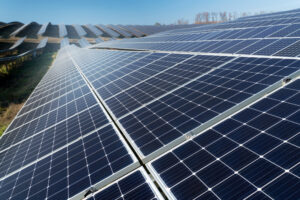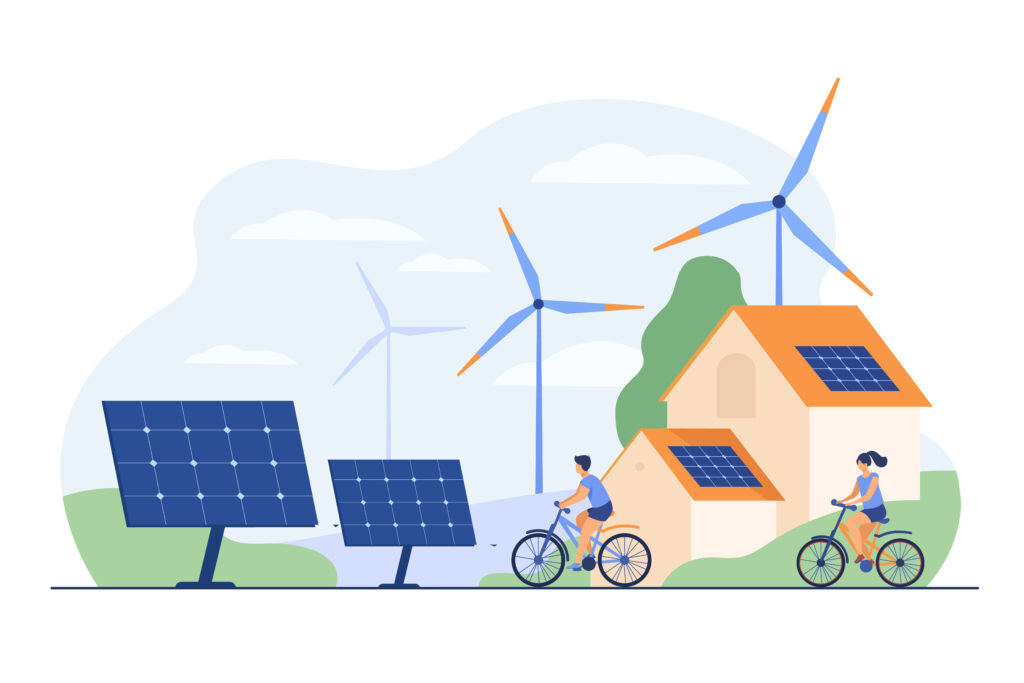Solar panels are a cornerstone of renewable energy, converting sunlight into electricity to power homes, businesses, and more. Understanding how they work can demystify this technology and highlight its potential. Solar Panels are also probably one of the best natural sources of energy as it only requires sunlight, this is where deserts and sunny countries could be heavily utilised for maximum efficiency.
How Do Solar Panels Work? – Explanation
Solar panels generate electricity from sunlight through a straightforward process. When sunlight hits the panels, photons strike silicon cells, which are made of two layers: n-type and p-type silicon. This interaction excites electrons, causing them to move and create a direct current (DC).
An inverter then converts this DC into alternating current (AC), which powers homes and appliances. The efficiency depends on sunlight intensity and panel cleanliness.
Excess electricity can be stored in batteries or sent to the grid. This clean, renewable process harnesses solar energy to produce sustainable power with minimal environmental impact.
A more expert-explanation can be found here.

China: The Global Leader in Solar Panel Installations
As of September 2025, China is currently having the most solar panels installed worldwide, with a staggering cumulative photovoltaic (PV) capacity exceeding 1,100 gigawatts (GW)—more than double that of any other country.
China is reaping significant benefits from its dominance in solar panel production. As the world’s largest manufacturer, it controls over 80% of global supply, driving economic growth through exports worth billions annually.
Low production costs, fueled by cheap labor and advanced technology, allow Chinese firms to offer competitive prices, capturing international markets. Domestically, widespread solar adoption reduces reliance on coal, cutting air pollution and supporting climate goals.
Government subsidies and investments in renewable energy infrastructure bolster the industry, creating jobs and fostering innovation. Additionally, China’s solar expertise strengthens its geopolitical influence, positioning it as a leader in the global clean energy transition.
Efficiency Of Solar Panels
Solar panels are designed to be low-maintenance, but their efficiency depends on factors like cleanliness and orientation. Dust, debris, or shading from trees can reduce output, so periodic cleaning and ensuring clear access to sunlight are important. Panels are also built to last 25–30 years, with warranties often guaranteeing 80–90% efficiency even after decades.
Why It Matters
By converting sunlight into electricity, solar panels offer a clean, renewable energy source that reduces reliance on fossil fuels and lowers carbon emissions. The process is simple yet powerful: sunlight excites electrons, creating a current that’s converted and used to power your life. With advancements in technology, solar panels are becoming more efficient and affordable, making them a key player in the global shift to sustainable energy.
For more details on solar panel installation or costs, check resources like energy.gov or consult a local solar provider. If you’re curious about real-time discussions on solar energy, platforms like X can offer insights from users and experts alike.

